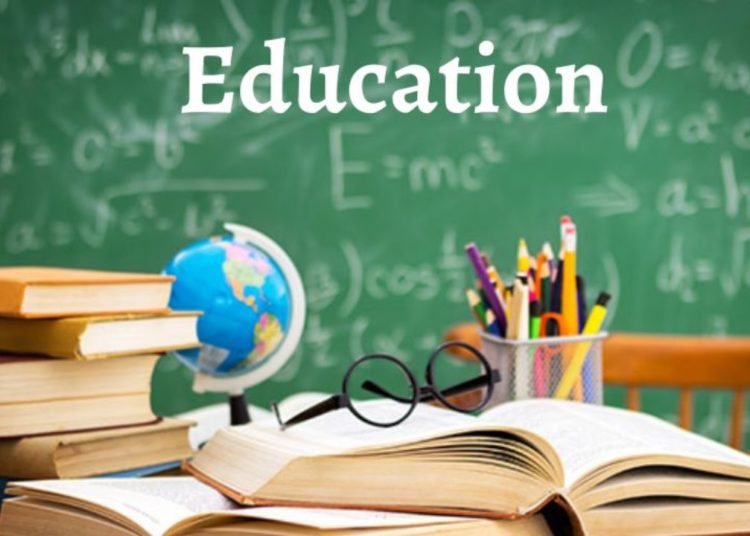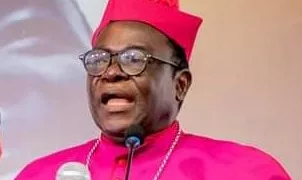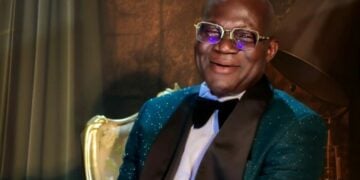As someone who has been following Nigerian politics closely, I know that with the forthcoming elections, there will be promises from different political parties to hand us a better Nigeria. One of the things I would love to see would be a manifesto for education. A country cannot rise beyond its educational system. Nelson Mandela once said, “Education is the most powerful weapon you can use to change the world.” So, how are we changing ours?
It is common knowledge that education as a public good in Nigeria is bereft with so many challenges. The government cannot provide the necessary infrastructure to cater to her teeming population, alongside the dilapidated infrastructural/ facilities challenge. The student/teacher ratio in our public schools is beyond unimaginable proportions.
There is low access to university education, outdated curriculum, nonfunctional or nonexistent libraries, lack of funding for research, and the issue of continuous strikes in our higher education system. There is a shortage in the needed knowledge, skills, and competencies of our teachers because of the broken-down educational system and the capacity of our colleges of education to churn out qualified teachers. These challenges make it impossible for learning to happen indeed.
Education has become an expensive good in Nigeria. The ordinary person cannot afford the exorbitant school fees from private school providers. Education, which should be a right for all Nigerians, is no longer so. This education malady needs to be addressed if education will continue to create a more sustainable future and create a sense of global responsibility to communities. Nigeria allocates about 7 percent of its national budget to education, as opposed to the 15 to 20 percent recommended by United Nations Educational, Scientific and Cultural Organization (UNESCO) (Abdulmajeed et al., 2020; Aluede et al., 2012; Hussain, 2020; The United Nations Educational Scientific and Cultural Organization, 2020, Umeri, 2021).
At the point of writing this essay, the Academic Staff Union of University (ASUU) had been in one of its most extended strikes ever. ASUU is the body of all the academic staff in “most” Nigerian universities. According to a 2022 Punch report by Deborah Tolu- Kolawole, ASUU had embarked on 16 strikes in 23 years. It has always been a tug of war between the association and the federal government of Nigeria. The main issue they claim is that the federal government of Nigeria failed to implement some of the agreements with ASUU over the years. As a result, millions of our youths are at home, with no end in sight to when they will return to the classroom. This is just the higher institution side of the story.
The public primary and secondary schools are nothing to write home about. First, the research on early childhood education tells us that how a country caters to early childhood education determines the future economic prosperity of that nation. Secondly, the intervention of early childhood education has the potential to ameliorate poverty, especially for children from economically disadvantaged backgrounds (Sims and Brettig, 2018). Unfortunately, reports, videos, and images of young Nigerian children in dilapidated buildings are replete on the internet (nairaland.com and lindaikeji’sblog. com). These images are disturbing: children sitting on the bare floor to learn, leaking roofs, flooded classrooms, overcrowded classrooms, and broken-down sewages.
With the poverty rate in Nigeria, more than half of the population would require the public-school education for their children and wards. Many of these people and families cannot afford Nigeria’s high cost of private education. If there were no public education system in Nigeria, some of us would never have gotten any form of education. The education was not perfect in my time, but it was good. We could stand side-by-side with our counterparts who attended private schools and still pulled our weights. Unfortunately, that is not the situation today; the knowledge gap keeps widening.
As all the political parties campaign to the Nigerian people in the coming months, show us your plans concerning the educational system. There is no gainsaying that the education sector needs a total overhaul. If we are truly serious about the future of our nation, then we must do something about the “public education system in Nigeria.” Education is a human right; every child deserves education irrespective of their parents’ social-economic status. In straightforward terms, outline your education plan, not just at the infrastructure level but also at the human capacity part of it. Some of the school buildings are inhabitable, and new structures should be constructed. Children should never sit on the floor to learn, they deserve some dignity. Chairs and tables should be made for them to sit and write on. We need to increase access to training for our teachers, and they should have the skills and tools they need to do their jobs well. The schools that prepare teachers (Colleges of Education and Teachers Training Colleges) should be adequately funded and the best hands recruited. Compensation-wise, the teachers are some of the lowest paid in Nigeria (salaryexplorer.com). Our teachers should be paid “livable wages” at the barest minimum. Conduct a market-based analysis to pay the teachers the “comparable worth” of their job.
I am a concerned Nigerian; I know that education provided me with the voice and the platform that I have today. All my educational experiences in Nigeria were through the public school system. At the higher education level, I was fortunate to attend a public/federal university (University of Nigeria) which was considered one of the best of my time. Therefore, I speak and write as someone who “benefitted” from the public school system in Nigeria. I am a product of the public education system in Nigeria. Many of us (Nigerians living at home and in the diaspora), went through the Nigerian public school system. It shows that we did something right at some point as a country. How many parents can confidently send their children to a public primary and secondary school today? I dare say it is the people who do not have the economic means. If they had a choice, they probably would not.
Dear politicians, local government councilors and chairpersons, elected governors, and members of the House of Representatives and Senate, this is your opportunity to courageously do right by the people you profess to represent. This is the time to do the right thing. We are a prosperous nation with the resources and human capacity to turn the education sector around. We call on leaders with the political will to deliver the desired outcomes for our country. I desire that good and accessible education in Nigeria will not only be for the rich and a select few, but it will indeed be for all.
–Dr. Umeri is an Assistant Teaching Professor at the Hugo Wall School of Public Affairs, Kansas, USA.





